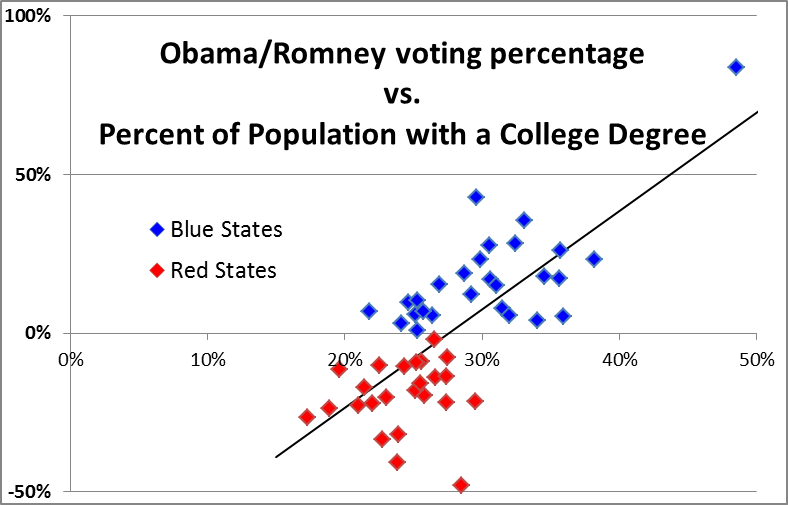“Numquam ponenda est pluralitas sine necessitate”, William of Ockham’s famous razor which is taken to mean “simpler explanations are, other things being equal, generally better than more complex ones”, is used across numerous fields to help select those hypotheses with better, and more succinct, explanatory power than others. Herein, Ockham’s Razor will be used to develop a simple, yet encompassing, explanation of the Republican Party’s actions.
The generally accepted, working hypothesis to explain that actions of the Republican Party is that its goal is to help corporations, and those who run them, acquire as much wealth as possible. This hypothesis is supported by many of the actions carried out by Republicans. Recent examples of such behaviors include:
- insisting on a low marginal income tax rate for the wealthy,
- working to weaken and/or eliminate financial reform laws,
- refusing to allow carried interest to be treated as ordinary income,
- opposing efforts to increase the minimum wage,
- creating a myriad of corporate tax loopholes,
- increasing funds for military operations, and
- providing subsidies to some of the nation’s largest and most profitable companies.
All of these actions are associated with staggeringly large sums of money and directly support the working hypothesis. However, other Republican actions simply cannot be explained with this hypothesis. For example, to suggest that the recent cutting of the Supplemental Nutrition Assistance Program by $40B over ten years (which is the same as the average American household cutting its annual expenses by a mere $44) will help the wealthy accumulate more wealth is simply not reasonable given the minor amount of money.
To address the shortcoming with the working hypothesis, there are those who assign attributes such as cruelty and uncaringness to the Republican Party. However, not only are such pejoratives not true in general, they also fail Ockham’s Razor as numerous such amendments to the working hypothesis are needed to encompass the broad swath of observed behaviors. This raises the question: Is there an amendment to the working hypothesis which both satisfies Ockham and explains the observed behaviors?
There is.

The chart shows the percentage of people who voted for Mr. Obama minus the percentage of people who voted for Mr. Romney versus the percentage of people with a four year college (or more) on a state-by-state basis. Each of the states, plus the District of Columbia, is shown as a point, blue spots for states that were won by Mr. Obama and red spots for states that were won by Mr. Romney.
Once plotted, a regression analysis was performed. This analysis yielded a coefficient of determination (typically referred to as R2) of 0.54. (For those accustomed to working in the physical sciences, this R2 value may seem to be rather small. However, in the social sciences, university faculty are encouraged to publish their results if R2 exceed 0.15. Thus, for a totally uncontrolled, social sciences ‘experiment’, 0.54 is an extraordinarily high value for R2.)
To state the meaning of this observation non-mathematically: Those states with a lower percentage of college educated adults tend to vote Republican.
This observation forms the basis for a proposed modification to the working hypothesis that explains the actions of the Republican Party, namely its goal is to help corporations, and those who run them, acquire as much wealth as possible and to provide this support for as long a period of time as possible. To achieve this objective, the Republicans are acting as if the above correlation is evidence of causality, i.e., their actions are specifically targeted at reducing the number of people who will attain a college education, which to their way of thinking means more people voting Republican which will help them maintain legislative control for an extended period of time. Consider:
- making college loans more expensive: by greatly increasing the interest rate on tuition assistance loans, fewer people will be able to afford college.
- cutting of the Supplemental Nutrition Assistance Program: innumerable studies have linked adequate nutrition with cognitive development, thus restricting funding means that more children are likely to perform poorly in school.
- reducing support for the NSF, NIH, NASA, etc.: reduced funding means fewer people working towards advanced degrees, which means fewer people available to teach college.
- passing laws to gut hazardous waste legislation: exposure to environmental toxins are known to cause cognitive disabilities.
- working to eviscerate the Common Core Standards: these standards are the first attempt ever to provide nationwide guidance regarding material needed for students to succeed academically in a globally competitive environment.
- supporting Evangelical Christianity: studies have shown that the level of college attainment for Evangelicals is below the national average.
- opposing same sex marriages: children growing up in a two adult household academically outperform those who grow up in a single adult household.
The expanded hypothesis provides a simple, yet encompassing explanation of the behavior of the Republican Party. While the expanded hypothesis seems to satisfy Ockham, it certainly should not satisfy the American electorate.
